Population Health Sciences
Program Highlights
- Careful mentor matching, individualized career development planning, and rigorous academic training necessary to ensure success as an independent and collaborative investigator
- Designed for students with an advanced degree and/or relevant clinical research experience, the program provides opportunities for students to be directly involved in research from the first day.
- Competency-based, transdisciplinary research training program focused on translating research into effective clinical practice and policy
- Rigorous training in theory, responsible conduct of research, epidemiologic methods, biostatistics, health services research, outcome measurement, and behavioral science
- Train with the innovators in clinical and health services research
- Supportive educational environment
- Average time-to-degree of 4 years
- Excellent track record of placing our graduates in competitive post-doctoral fellowships, faculty positions, and public and private research careers
Program Objectives
The overarching objectives of our doctoral training program are:
- To deliver a transdisciplinary research training program focused on epidemiology, biostatistics, and health services research geared toward translating research into effective disease prevention programs, clinical practice and policy
- To recruit pre-doctoral trainees resulting in a diverse trainee pool with respect to socio-demographic characteristics, clinical background, and disciplinary perspective
- To provide trainees with individual mentoring, academic training, and technical skills necessary to ensure their success as independent investigators as well as contributors to team science
- To provide “hands on” research experience that builds on the strengths of the current environment of linkages between UMass Chan Departments, Centers, and Institutes
CURRICULUM AND SCHEDULE
To achieve the objectives of the Biomedical Sciences PhD degree in the Population Health Sciences Program, students must gain competency in the following areas: 1) theory and context, 2) study design, 3) analysis, interpretation, and presentation of data, 4) responsible conduct of research, 5) information and data acquisition and management, 6) measurement, 7) effective communication, 8) professionalism and 9) critical appraisal. Our proposed educational model not only provides formal instruction in each of the areas noted, but also integrates and reinforces these concepts throughout the curriculum.
Learn more about specific competencies
With their mentors, students develop a curriculum tailored to meet their needs based on previous accomplishments, their research interests, and their educational goals. Students are required to successfully complete:
- CTS605A (3 credits)
- CTS602A Advanced Epidemiology (3 credits)
- CTS603A, CTS603B Biostatistics (8 credits)
- GBS601 Responsible Conduct of Research, Part 1 (1/2 credit)
- GBS602 Responsible Conduct of Research, Part 2 (1 credit)
- CTS875 Proposal Development(3 credits)
- at least 10 credits substantive electives (selected based on research interests)
- at least 8 credits of methods electives (selected based on research interests)
View all Population Health Sciences course offerings
In addition to formal coursework, students complete research assistantships (~20 hours per week); participate in research methods seminars, journal club, research in progress meetings, and workshops; and must have one teaching assistant experience with trainees in a graduate level class, workshop, or other educational offering relevant to Population Health Sciences. The teaching assistant experience includes the development and delivery of at least one lecture, mentored by a PHS faculty member.
A comprehensive project is conducted in the summer between Year 1 and 2 (CTS604). Written qualifying exams are conducted in December of Year 2. Students then develop their dissertation proposal and complete the oral qualifying exam in May of Year 2. Students then complete their dissertation which takes the form of an introduction, 3 publishable manuscripts, and a concluding chapter. See the Student Handbook for more details.
OUR LEADERSHIP AND FACULTY
Interim Pathway Director
 Shao-Hsien Liu, PhD, MPH
Shao-Hsien Liu, PhD, MPH
Associate Professor, Population and Quantitative Health Sciences
email Dr. Liu
FACULTY
Our faculty and students conduct science that makes a difference in several areas of excellence, including:
Aging
The “graying” of the population makes research into the determinants and effects of aging on health a priority. In collaboration with the Division of Geriatric Medicine aging research initiatives at UMass Chan aim to promote health, prevent functional decline, and improve quality of life among older adults.
Kate Lapane, PhD, Jen Tjia MD, and Tony Nunes are among the faculty who conduct studies of older adults.
PHS students involved in aging research have included Camilla Pimentel, MPH, who evaluated analgesic medication patterns among U.S. nursing home residents with cancer, and Alexandra Hajduk, MPH, who examined cognitive status as a predictor of secondary preventive lifestyle change in patients with acute coronary syndrome.
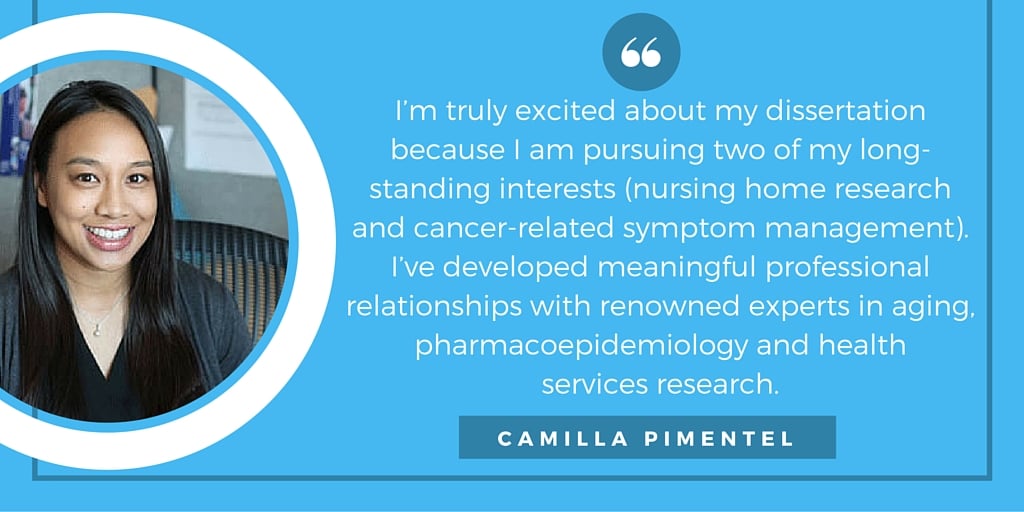

Health Disparities
Health disparities research targets health improvement in populations disproportionately affected by disease, injury and disability. Active collaborations with the Department of Population and Quantitative Health Sciences and the Department of Family Medicine and Community Health.
Select faculty members involved in health disparities research include Milagros Rosal, PhD, Sarah Forrester, PhD, and Jeroan Allison, MD, MScEpi.
Health Informatics and Implementation Science
We are committed to the Department’s mission: to advance science and improve population health. We pursue the discovery and dissemination of new knowledge in the fields of health informatics and implementation science. Our work focuses on clinical research informatics, consumer health informatics, public health informatics and the translation of evidence into practice. Our goal is to achieve sustained improvements in health outcomes.
Our research funding portfolio has included intramural grants and extramural grants from NIH, AHRQ, PCORI, VA QUERI, and others. Our faculty have affiliations with neighboring organizations, including the VA (Bedford and Central Western Mass), Worcester Polytechnic Institute, UMass Amherst School of Computer Science, and Boston University.
Division researchers have expertise in:
- Implementing and evaluating interventions that engage individuals, families, health organizations, and community stakeholders in promoting healthy behaviors --- ranging from pilot studies to randomized controlled trials.
- Recruiting and retaining diverse and underserved populations, utilizing community-based strategies and social media.
- Integrating and analyzing various data, such as from electronic health records, to answer questions in healthcare, improve clinical workflow, and influence policy.
- Utilizing state-of-the-art methods including machine learning (deep learning) and natural language processing.
- Investigating the use of mobile health technologies, including smartphone apps, text messaging, and wearable technologies.
https://www.umassmed.edu/pqhs/divisions/health-informatics-and-implementation-science/
Health Promotion & Disease Prevention
Health promotion and disease prevention research aims to enable people to increase control over their health and its determinants, and thereby improve their health. It explores the behavioral, social and environmental influences on health and develops interventions to minimize disease and maximize wellbeing. Active collaborations among the PHS program and the Division of Preventive and Behavioral Medicine led by Stephenie Lemon, PhD, the Department of Family Medicine and Community Health, and the Worcester Country Prevention Research Center contribute to this effort.

Health Services Research
Health services research is a multidisciplinary field focused on the organization, financing, delivery and outcomes of health care. This research aims to support higher quality, more efficient and less expensive medical care to populations. Active interdisciplinary collaborations with the Department of Population and Quantitative Health Sciences and Meyers Health Care Institute .
Select faculty members involved in health services research include Arlene Ash, PhD, whose work focuses on how best to measure and improve the value of U.S. health care spending, and Matthew Alcusky, PhD, PharmD, MS, who analyzes treatment patterns and costs for mental illness and substance use disorders in underserved populations.
CPHR students involved in health services research include Lisa Lines, MPH, mentored by Arlene Ash, whose AHRQ-funded predictive modeling of emergency department visits may identify patients at risk of future emergency department use.
Pharmacoepidemiology
Faculty at UMass Chan Medical School are dedicated to advancing the health of pharmacoepidemiology, including such areas as drug utilization research, comparative effectiveness, and comparative safety. The International Society of Pharmacoepidemiology defines pharmacoepidemiology as “the science that applies epidemiologic approaches to studying the use, effectiveness, value and safety of pharmaceuticals”. Select faculty engaged in pharmacoepidemiology research include Anthony Nunes, PhD, Matthew Alcusky, PhD, PharmD, MS, Kate Lapane, PhD, and Jen Tjia, MD. MSCE.
OUR STUDENTS
STUDENT SPOTLIGHT
Inspired by parents, PhD candidate first in family to pursue higher ed

Clevanne Julce is focused on preconception mental health care and equipping people with mental health tools and resources before they become pregnant. Her ultimate goal is to become an independent investigator and design culturally responsive preventive interventions for historically underrepresented populations with mood and anxiety disorders.
Melissa Goulding, PhD'23
Melissa Goulding’s research interests include chronic disease prevention and health promotion in children with an emphasis on health equity. Goulding received a three-year grant from the National Heart, Lung and Blood Institute to fund her dissertation research into how pediatric blood pressure screening guidelines are being followed locally.
OUR CURRENT STUDENTS
For more detailed information about our current students, including their previous educational and professional experience, please visit this page.
Alan Ardelean, MS
Alan Ardelean earned his Master's in Epidemiology at the University of Rochester School of Medicine and Dentistry. His research interests include emergency medicine, psychiatric epidemiology, and substance use and prevention. Alan's internships with MGH, UMass Chan, and SAMHSA supported his growing interest in these fields and motivated him to pursue doctoral research through the Population Health Sciences program at UMass Chan.
Emmanuella Asantewaa Asiedu, BS, MPH
Emmanuella is mentored by Sarah Forrester, PhD and Jennifer Tjia, MD, MSCE. Her research interests are in social epidemiology and health disparities, especially looking at how social structural factors impact chronic disease burden in marginalized communities and how we can use what we know/learn from research to help reduce these health disparities.
Narayani Ballambat, MPH
Narayani Ballambat (she/her/hers) earned her BS in Physiology and Neurobiology, and her BA in English from the University of Connecticut. Following her Bachelor’s, she joined the Program in Applied Public Health Sciences at UConn for her MPH. She has worked on research projects that have focused on various topics including sexual double standards in media, breast cancer using structural equation modeling, and breast cancer among South Asian women.
Esther Boama-Nyarko, BS, MPH
Esther is mentored by Nancy Byatt, DO, MS, MBA, and her primary research interests are under the umbrellas of health equity, mental health, and community-based research.
Claire Branley, BS
Claire is mentored by Stephenie Lemon, PhD and her research interests include prevention of chronic disease through nutrition and diet-related interventions, particularly through government programs such as SNAP and WIC.
Jessica Caouette, MS, RDN, LDN
Jessica Caouette, MS, RDN, LDN is a Registered Dietitian and earned her MS in Nutrition from Boston University. She has spent over 15 years managing projects and programs that have expanded the reach and effectiveness of federally-funded nutrition education, specifically for families receiving SNAP-Ed benefits. In these roles, Jessica utilized both quantitative and qualitative methods to drive equitable, empathetic solutions driven by users themselves. Jessica is an adjunct faculty member in the Department of Nutrition and Health Studies at Framingham State University. More recently as a Research Assistant at Tufts University, Jessica supported the work of systematically reviewing interventions in early pregnancy to normalize outcomes of pregnant individuals at risk of hyperglycemia. Jessica’s research interests include effective child and maternal health nutrition policy, practices, and strategies to improve diet quality and support healthy growth. Jessica is mentored by Dr. Stephenie Lemon.
Nathaniel Glassy, ALM, CCRC
Nathaniel is mentored by David A Smelson, PsyD. His research interests include understanding substance abuse and cooccurring mental health disorders, their impact across neurocognitive domains, relationship of cognitive rehabilitation to treatment outcomes, and research participation among underserved populations.
Joshua Harvey, MPH
Josh (JT) Harvey completed my MPH in Epidemiology and Biostatistics at Boston University's School of Public Health. He has over three years experience working within consulting, pharmaceuticals, and academia. Before matriculating into UMass Chan Medical School's Population Health Sciences PhD program, he was a Senior Research Assistant for the TIDE (Therapeutics and Infectious Disease Epidemiology) group within Harvard Pilgrim Healthcare Institute, followed with a Health Economics Co-Op at Glaxo Smith Kline, and lastly, a Health Economics intern for a boutique HEOR consulting firm. His research interests include pharmacoepidemiology, health economics and outcomes research, health policy and equity, chronic diseases, mixed-methods, and psychiatric, social, and nutrition epidemiology.
Clevanne Julce, BS, MPH
Clevanne is mentored by Nancy Byatt, DO, MS, MBA and her primary research focus seeks to use a mixed-methods approach to investigate the intersection between the use of technology, preconception care delivery, and the growing field of implementation science.
Heeyoon "Melissa" Jung, BSN, MS
Melissa is is mentored by Kate Lapane, PhD. Her current research interest is analyzing large population datasets to assess the safety and effectiveness of medical interventions.
Hyein "Sarah" Lee
Hyein Sarah Lee is mentored by Apurv Soni, MD/PhD. Her research interests are in using digital tools and qualitative methods to understand mechanisms of suicidality, structural racism, and iatrogenic harm in mental healthcare.
Mary R. Lee, BS, MPH
Mary is mentored by Sarah Forrester, PhD and her research focus encompasses dietary behaviors and health inequalities among racial minoritized groups, with a specific focus on various forms of structural and social determinants of health that may influence health behaviors and risk factors linked to cardiovascular health.
Shiwei "Echo" Liang, MA, MS
Echo is mentored by Matthew Alcusky, PhD, PharmD, MS and her research interest is in pharmacoepidemiology and health system including insurance claim data, prescription drug effectiveness, health intervention, as well as the development of healthcare system evaluation to promote health surveillance.
Syed Naqvi, BS
Syed, a PhD Candidate mentored by Anthony Nunes, PhD, conducts research on improving care quality, managing comorbidities, and addressing pressure ulcers among older adults in nursing homes. His dissertation concentrates on quantifying the impact of family involvement on quality of care, mental, and physical health outcomes in nursing homes. Syed's work contributes to the understanding of how family support affects healthcare for older adults.
Laël Nethania Ngangmeni, BA, MBS
Laël is mentored by Kristin Mattocks, PhD, MPH and her research interests include infant and maternal health, health disparities—especially with regards to race and religion, immigrant and refugee health, and mental health.
Natalia Nielsen, MPH
Natalia is mentored by Kate Lapane, PhD and Maira Castaneda Avila, PhD and has research interests in women’s health, aging, mixed methods research and working with minority populations.
Atinuke Oyinbo, BSc, MPH
Atinuke is mentored by Mara Epstein, ScD, ScM and Kate Lapane, PhD and her research interests lie broadly in the field of cancer epidemiology, particularly in biomarkers, survivorship, comorbidities, polypharmacy and cancer disparities.
Meagan Sabatino, BA, MSL
Meagan is mentored by Mathew Alcusky, PhD, PharmD, MS. and her research interests include the evaluation and implementation of innovative healthcare delivery strategies and comprehensive policy solutions that improve the healthcare system, patient outcomes, and access to care in underserved populations.
Anahita Saeedi, MS
Anahita Saeedi, MS research interests include pediatric health, leukemia, mixed models and machine learning models. For my masters thesis, I studied a clinical trial on children with high cholesterol.
Gretchen Weaver, BA, MPH
Gretchen is mentored by Apurv Soni, MD, PhD. She has research interests in global health, infectious diseases, language exchange, health equity, and mixed methods.
Peng "Billy" Zhou, MS
Billy is mentored by Chan Zhou, PhD and is currently interested in computational methods development of integrating multiple big data (high-throughput sequencing genomics, transcriptomics and clinical health record) to explore noncoding RNAs and epigenomics for personalized medicine.
-
 Read more
Read more -

Inspired by parents, PhD candidate first in family to pursue higher ed
Read more -

PREP graduates, IMSD scholars honored; learn social side of science
Read more -

Melissa Goulding receives highly competitive NIH Kirschstein Award
Read more -
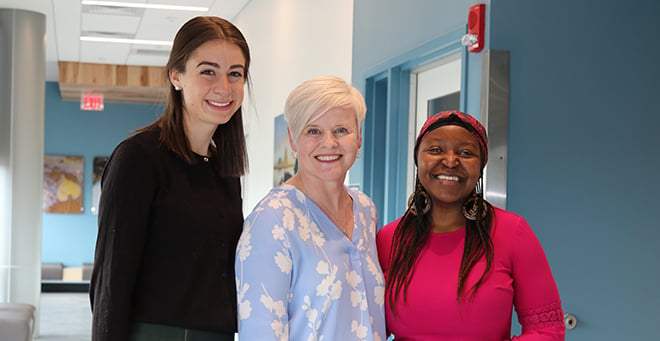
Next generation of VA researchers to explore maternal health during new summer research training program
Read more -

UMass Chan student trustee focused on diversity, equity and inclusion
Read more
-
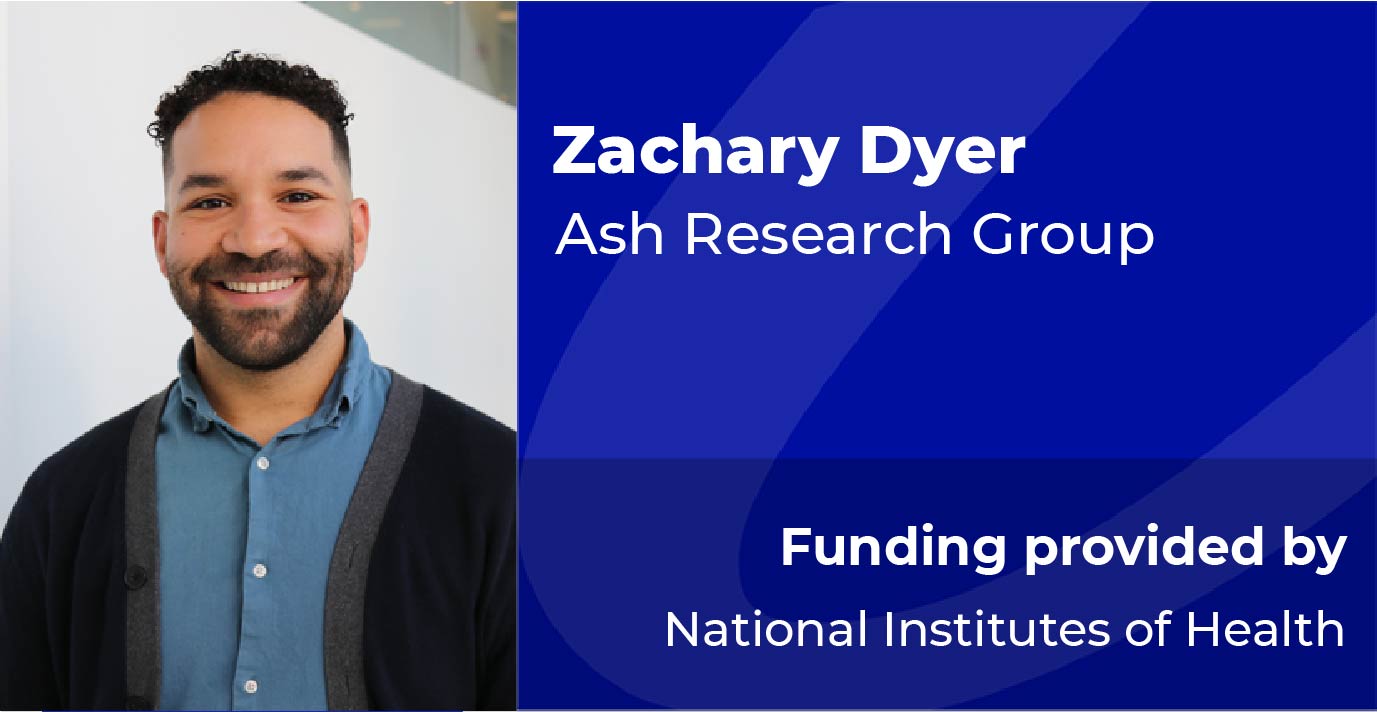
Outlining Shadows of Structural Racism Using Publicly Available Social Determinants of Health Data
Read more -

Care Integration, Supportive Housing, and Outcomes for Medicaid Accountable Care Organization Enrollees with Behavioral Health Conditions
Read more
-

Adherence to Clinical Practice Guidelines for Screening and Management of Pediatric High Blood Pressure within a Massachusetts Safety-Net Health Care System
Read more -
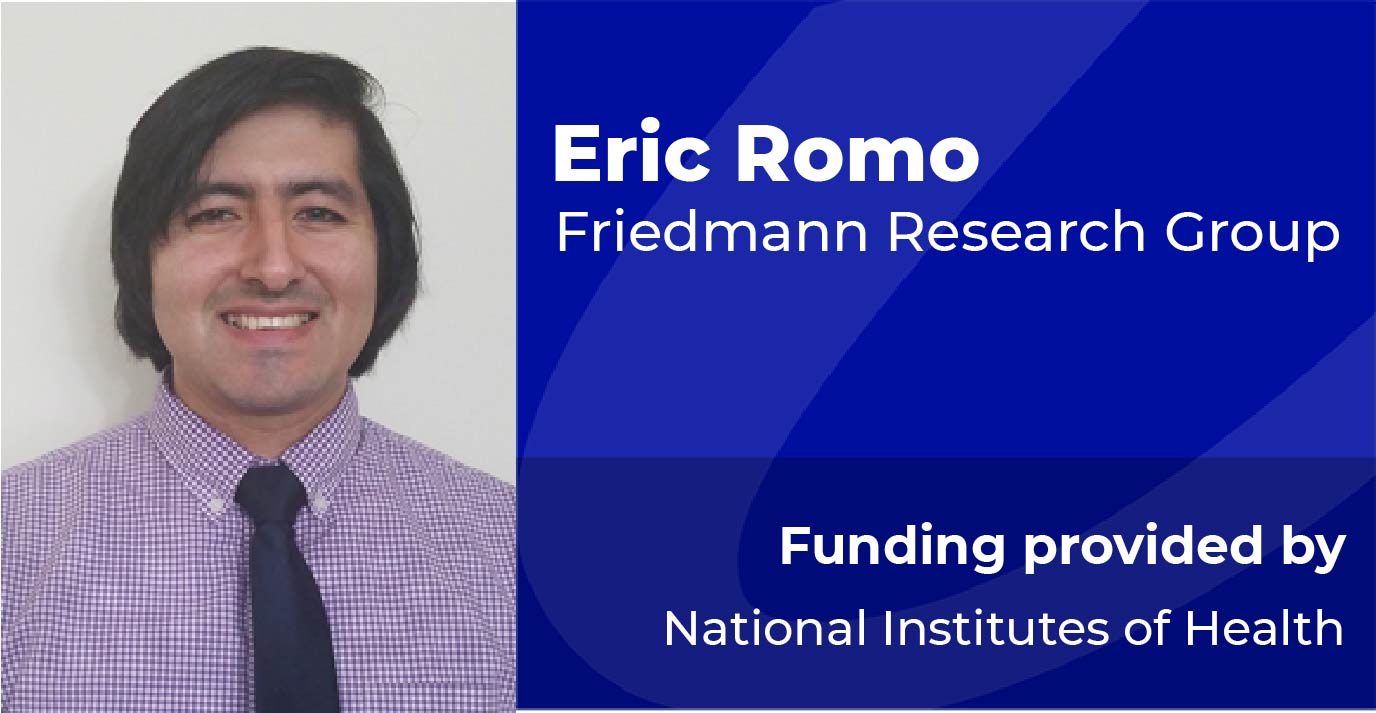
The Influence of Spatial Proximity to Sterile Syringe Sources and Secondary Syringe Exchange on HCV Risk Among Rural People Who Inject Drugs
Read more -
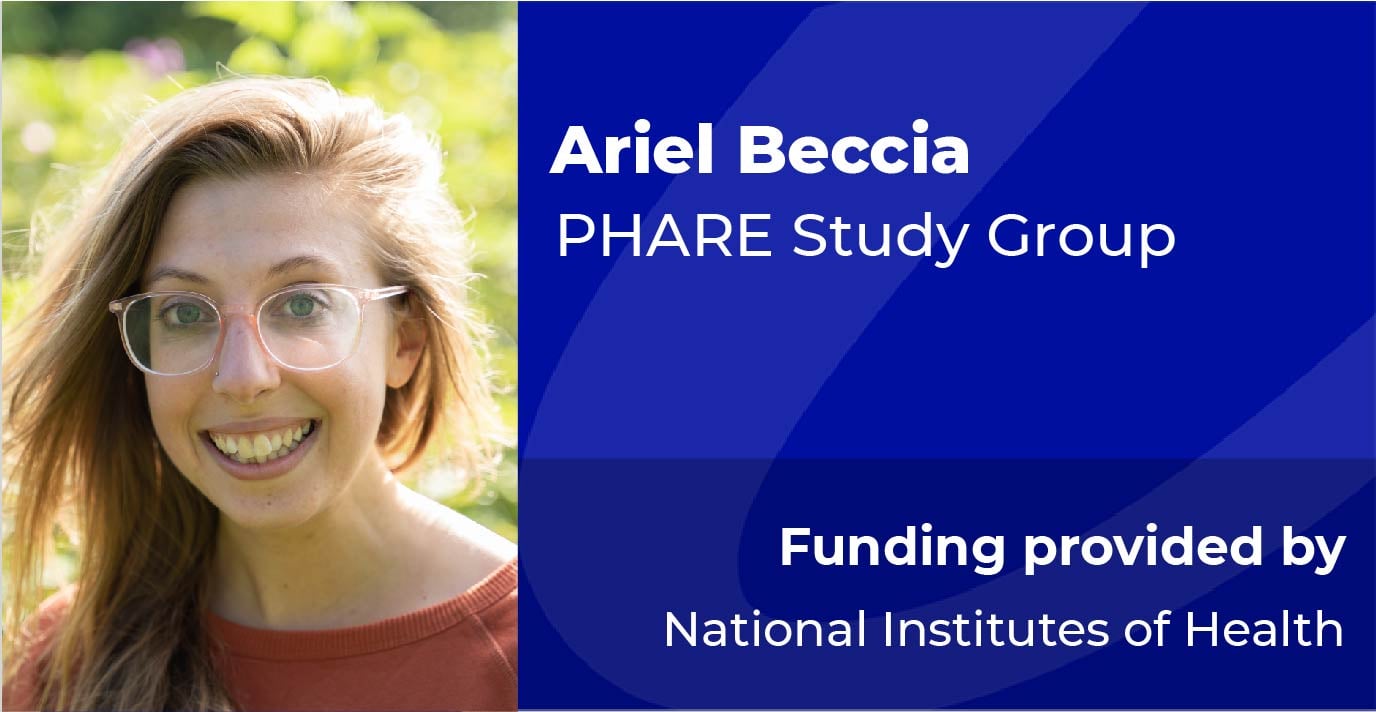
Intersectionality of Sexual Orientation, Gender Expression, and Weight Status on Risk of Disordered Eating Behaviors
Read more -

Feasibility of Smartwatches for Atrial Fibrillation Detection in Older Adults
Read more -

Concurrent trajectories of physical frailty and cognitive impairment among nursing home residents and community-dwelling older adults
Read more -
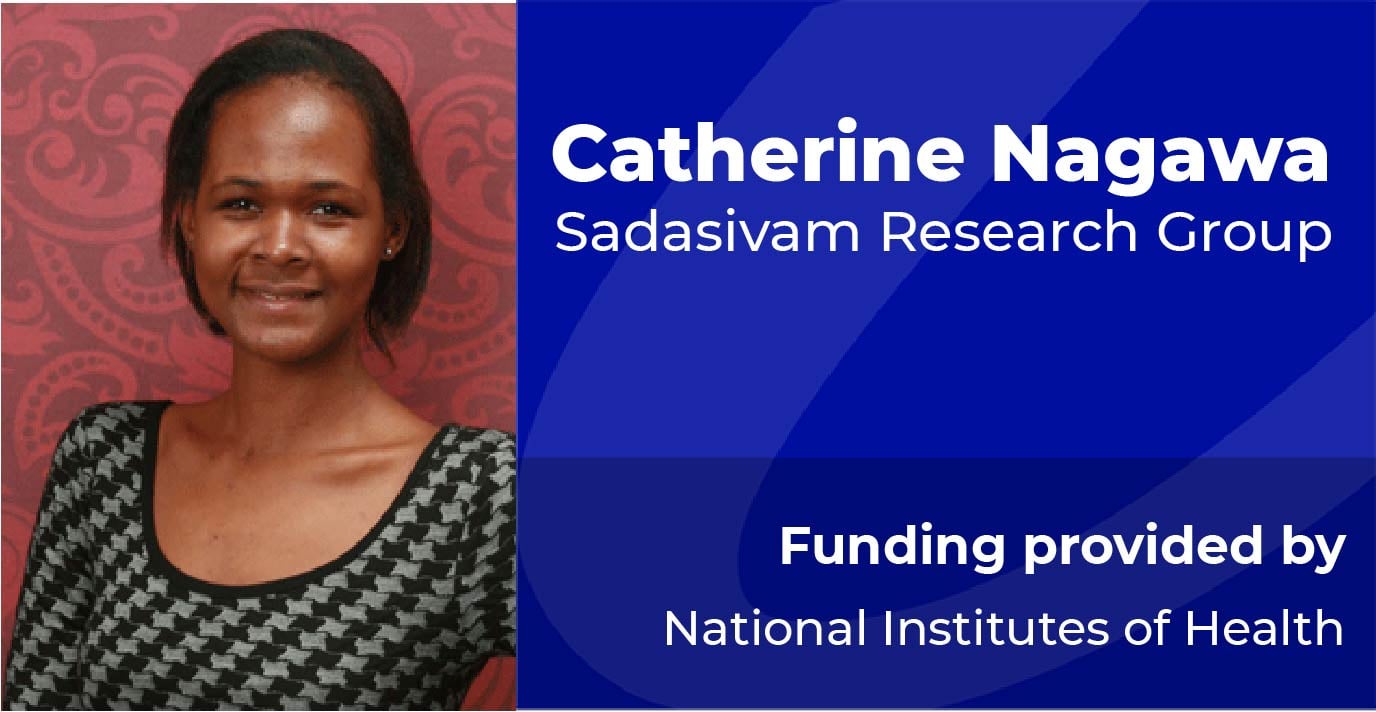
Smoking Cessation in Persons with Mental Health Conditions: Exploring the Role of Family and Friends
Read more -

Trends, Predictors, and Consequences of Child Undernutrition
Read more -

Patient and Social Determinants of Health Trajectories Following Coronary Events
Read more -
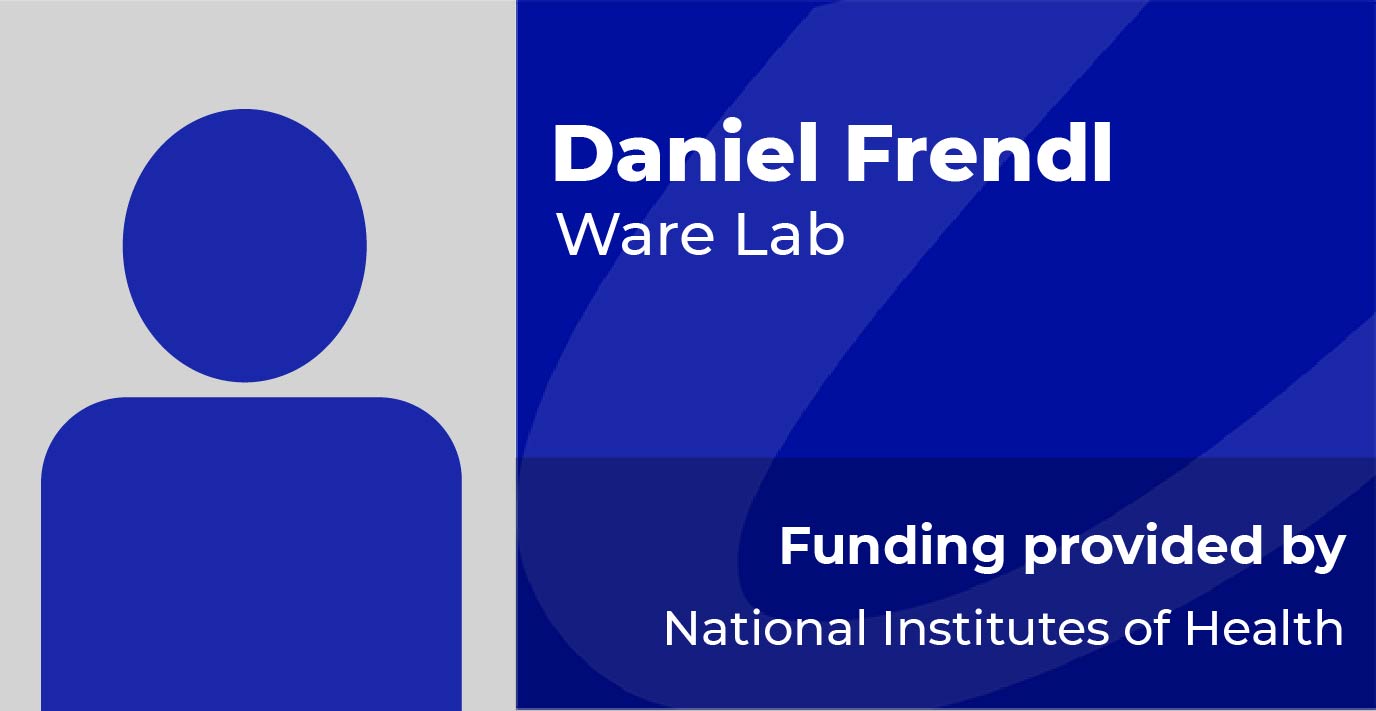
Functional Health Predictors of Other Cause Mortality Risk in Prostate Cancer
Read more
POST-DEGREE CAREERS
HAWA O. ABU, MD, PHD, MPH
2019 Graduate
Mentored by Catarina Kiefe, PhD, MD and Robert Goldberg, PhD
ASSISTANT PROFESSOR
Division of Geriatric Medicine
UMass Chan Medical School, Worcester, MA
Dissertation: Religiosity and Patient Activation and Health Outcomes among Hospital Survivors of an Acute Coronary Syndrome
MATTHEW ALCUSKY, PHARMD, PHD
2019 Graduate
Mentored by Kate Lapane, PhD
ASSOCIATE PROFESSOR
Division of Epidemiology
Department of Population and Quantitative Health Sciences
UMass Chan Medical School, Worcester, MA
Dissertation: Anticoagulant Use, Safety, and Effectiveness for Ischemic Stroke Prevention in Nursing Home Residents with Atrial Fibrillation
DANIEL AMANTE, PHD
2016 Graduate
Mentored by David Harlan, MD
ASSISTANT PROFESSOR
Department of Population and Quantitative Health Sciences
UMass Chan Medical School, Worcester, MA
ARIEL BECCIA, PHD, MS
2022 Graduate
Mentored by Kate Lapane, PhD
POST-DOCTORAL FELLOW
Boston Children's Hospital/Harvard Medical School, Boston, MA
Dissertation: The Social Epidemiology of Gender and Eating Disorders: Theoretical and Methodological Considerations
GANGA BEY, PHD, MPH
2019 Graduate
Mentored by Sharina Person, PhD and Catarina Kiefe, PhD, MD
ASSISTANT PROFESSOR
Carolina Center for Population Aging and Health
University of North Carolina, Chapel Hill
VIRGINIA BRIGGS, PHD, MA, MS
2009 Graduate
Mentored by Patricia Franklin, MD, MBA, MPH
ASSOCIATE PROFESSOR
Department of Arts and Sciences, Master of Public Health Program
Massachusetts College of Pharmacy and Health Sciences, Boston, MA
Dissertation: Injection Treatment for Lower Back Pain in Older Adults with Lumbar Spinal Stenosis
MAIRA CASTAÑEDA-AVILA, PHD
2021 Graduate
Mentored by Mara Epstein, ScD, ScM
ASSISTANT PROFESSOR
Division of Epidemiology
Department of Population and Quantitative Health Sciences
UMass Chan Medical School, Worcester, MA
Dissertation: The Role of a Monoclonal Gammopathy of Undetermined Significance Diagnosis in Healthcare Utilization
HAN-YANG CHEN, PHD
2015 Graduate
Mentored by Robert Goldberg, PhD
ASSOCIATE PROFESSOR
University of Texas Health Science Center at Houston
QIAOXI "TRACY" CHEN, PHD, MPH
2023 Graduate
Mentored by Mathew Alcusky, PhD, PharmD, MS
POSTDOCTORAL RESEARCH FELLOW
Division of Pharmacoepidemiology and Pharmacoeconomics
Department of Medicine
Brigham and Women’s Hospital, Boston, MA
Dissertation: “ Improving Oral Anticoagulant Use among U.S. Nursing Home Residents with Atrial Fibrillation”.
YONG CHEN, PHD
2011 Graduate
Mentored by Becky Briesacher, PhD
SENIOR DIRECTOR, REAL WORLD EVIDENCE, RARE DISEASE
Pfizer, Philadelphia, PA
YENDELELA CUFFEE, PHD
2012 Graduate
Mentored by Jeroan Allison, MD, MS
ASSISTANT PROFESSOR
University of Delaware
Dissertation: Exploring the Psychosocial and Behavioral Determinants of Medication Adherence Among African Americans with Hypertension
CAROL CURTIN, PHD
2015 Graduate
Mentored by Eric Mick, ScD
PROFESSOR
Family Medicine and Community Health and Psychiatry
UMass Chan Medical School, Worcester MA
DIRECTOR
Leadership Education in Neurodevelopmental Disabilities Program and University Center for Excellence in Developmental Disabilities
E.K. Shriver Center
UMass Chan Medical School, Worcester MA
Dissertation: Attention Deficit/Hyperactivity Disorder, Screen Time, Physical Activity, and Diet Quality
ERIC DING, MD, PHD
2021 Graduate
Mentored by David McManus, MD
RESIDENT PHYSICIAN
Warren Alpert Medical School, Brown University
Dissertation: Feasibility of Smartwatch-based Atrial Fibrillation Detection Among Older Adults After Stroke
HONGLIU DING, PHD
2008 Graduate
Mentored by Terry Field, PhD
COMMISSIONER'S FELLOW
US Food and Drug Administration’s Center for Food Safety and Applied Nutrition
EPIDEMIOLOGIST
National Center for Food Safety and Technology, Division of Food Processing Science and Technology
Dissertation: Bone Health and Coronary Heart Disease in Postmenopausal Women with Breast Cancer Treated with Tamoxifen
ZACHARY DYER, PHD
2022 Graduate
Mentored by Arlene Ash, PhD
MEDICAL TRAINEE
UMass Chan Medical School MD/PhD program
Dissertation: The Structural Racism Effect Index: a multi-dimensional tool to measure neighborhood-level structural racism
NATHANIEL ERSKINE, MD, PHD
2019 Graduate
Mentored by Catarina Kiefe, PhD, MD and Robert Goldberg, PhD
RESIDENT PHYSICIAN IN PREVENTIVE MEDICINE
University of North Carolina at Chapel Hill School of Medicine
KATARINA FERRUCCI, PHD, MS
2023 Graduate
Mentored by William Jesdale, PhD
SENIOR RESEARCH ACCOUNT MANAGER
Ipsos Healthcare/SMX
Dissertation: Eating Disorders Among Gender Minority Individuals: Prevalence, Facilitators and Barriers to Care, and Pathways to Gender Competency Among Mental Health Providers
LAUREN GELLAR, PHD, MED, MCHES
2011 Graduate
Mentored by Lori Pbert, PhD
PROFESSOR
Medical University of South Carolina, Charleston, SC
MELISSA GOULDING, BS, MS, PHD
2023 Graduate
Mentored by Stephenie Lemon, PhD
ASSISTANT PROFESSOR
Division of Preventive and Behavioral Medicine
Department of Population and Quantitative Health Sciences
UMass Chan Medical School, Worcester, MA
Dissertation: Adherence to Clinical Practice Guidelines for Screening and Management of Pediatric High Blood Pressure: A Mixed Methods Study
ALEXANDRA HAJDUK, PHD
2014 Graduate
Mentored by Jane Saczynski, PhD
RESEARCH SCIENTIST
Yale University School of Medicine, New Haven, CT
Dissertation: Cognitive Status and Initiation of Lifestyle Changes Following Acute Coronary Syndrome
CARLY HEBERT
Mentored by Apurv Soni, MD, PhD
MEDICAL TRAINEE
UMass Chan Medical School MD/PhD Program
Dissertation: Home Diagnostics, Viral Dynamics, and Post-Acute Sequelae of SARS-COV-2
JULIE HUGUNIN, MD, PHD
2022 Graduate
Mentored by Kate Lapane, PhD
GENERAL PSYCHIATRY RESIDENCY PROGRAM
Warren Alpert Medical School, Brown University
Dissertation: Healthcare Utilization in Youth with Mental Health Conditions
AIMEE KROLL-DESROSIERS, PHD, MS
2019 Graduate
Mentored by Kristin Mattocks, PhD, MPH
RESEARCH HEALTH SCIENTIST
VA Central Western Massachusetts Healthcare System, Leeds, MA
ASSISTANT PROFESSOR
Department of Population and Quantitative Health Sciences
UMass Chan Medical School, Worcester, MA
Dissertation: Understanding the Experience and Evaluating the Occurrence of Depression in a Sample of Pregnant Veterans
NIEN CHEN LI (ANNY), PHD
2021 Graduate
Mentored by Arlene Ash, PhD
SENIOR CORPORATE BIOSTATISTICIAN
Dialysis Clinic, Inc., Nashville, TN
Dissertation: Assessing and Modeling Quality Measures for Healthcare Systems
LISA LINES, PHD
2014 Graduate
Mentored by Arlene Ash, PhD
SENIOR HEALTH SERVICES RESEARCHER
RTI International, Waltham, MA
ASSISTANT PROFESSOR
Population and Quantitative Health Sciences
UMass Chan Medical School, Worcester, MA
Dissertation: Outpatient Emergency Department Utilization: Measurement and Prediction
SHAO-HSIEN LIU, PHD
2017 Graduate
Mentored by Kate Lapane, PhD
ASSOCIATE PROFESSOR
Department of Population and Quantitative Health Sciences
UMass Chan Medical School, Worcester MA
Dissertation: Impact of Intra-Articular Injection Use on Patient-Reported Outcomes Among Patients with Knee Osteoarthritis
ANDREA LOPEZ-CEPERO, PHD, MHSN
2019 Graduate
Mentor: Milagros Rosal, PhD
ASSISTANT PROFESSOR
Rollins School of Public Health
Emory University, Atlanta, GA
Dissertation: Physiological and psychological stressors associated with glucose metabolism in the Boston Puerto Rican Health Study
TANYA LORD, PHD
2011 Graduate
Mentored by Roger Luckmann, MD, MPH
DIRECTOR, PATIENT FAMILY ENGAGEMENT
Healthy Communities, Concord, NH
DEBORAH MACK, MPH, PHD
2020 Graduate
Mentored by Kate Lapane, PhD
RESEARCH COLLABORATOR
Physicians Research Center
Manahawkin, NJ
Dissertation: Statin Pharmacotherapy in US Nursing Homes
GRACE MASTERS, MD, PHD
2021 Graduate
Mentored by Nancy Byatt, DO, MS, MBA
PSYCHIATRY RESIDENCY PROGRAM
MGH McLean Hospital
Dissertation: Bipolar Disorder in the Perinatal Period: Understanding Gaps in Care to Improve Access and Patient Outcomes
CATHERINE NAGAWA, PHD, MS
2022 Graduate
Mentored by Rajani Sadasivam, PhD
POST-DOCTORAL ASSOCIATE
Department of Population and Quantitative Health Sciences
UMass Chan Medical School, Worcester, MA
Dissertation: Smoking Cessation in People with Mental Health Conditions: Exploring the Role of Family and Peers
SEUN OSUNDOLIRE, MD, PHD
2023 Graduate
Mentored by Kate Lapane, PhD
EPIDEMIOLOGIST
Global Medical Epidemiology
Pfizer, Cambridge, MA
Dissertation: "Descriptive Epidemiology of Chronic Obstructive Pulmonary Disease In US Nursing Home Residents with Heart Failure"
CAMILLA PIMENTEL, PHD, MPH
2015 Graduate
Mentored by Kate Lapane, PhD
RESEARCH ASSISTANT PROFESSOR
Department of Public Health
Zuckerberg College of Health Sciences
University of Massachusetts, Lowell
Dissertation: Use of Opioids for Pain Management in Nursing Homes
HILARY PLACZEK, PHD, MPH
2012 Graduate
Mentored by Lawrence Madoff, MD
SENIOR DIRECTOR, MEDICAL ECONOMICS AND OUTCOMES, CATASYS
Ariadne Labs
ALAN RATHBUN, PHD
2014 Graduate
Mentored by George Reed, PhD
ASSISTANT PROFESSOR
Epidemiology & Public Health
University of Maryland School of Medicine, Baltimore, MD
Dissertation: Depression in Rheumatoid Arthritis and an Estimation of the Bi-Directional Association of Depression and Disease Burden
ERIC ROMO, MD, PHD
2024 Graduate
Mentored by Peter Friedmann
FAMILY MEDICINE RESIDENT
East Boston Neighborhood Health Center
Boston University Medical School
Dissertation: The Influence of Spatial Proximity to Syringe Services Programs and Secondary Syringe Exchange on the Risk of Hepatitis C Virus Infection Among Rural People Who Inject Drugs
DIVYA SHRIDHARMURTHY, PHD, MBBS, MPH
2022 Graduate
Mentored by Shao-Hsien Liu, PhD
SENIOR RESEARCH ASSOCIATE
Evidera
Value & Access by PPD, part of Thermo Fisher Scientific, Bethesda, MD
Dissertation: Prescribed Medications and Healthcare Resource Utilization in Reproductive-Age Women and Men with Rheumatic Disease
APURV SONI, PHD, MD
2021 Graduate
Mentored by Jeroan Allison, MD, MS
ASSISTANT PROFESSOR OF MEDICINE AND DIRECTOR
Program in Digital Medicine
UMass Chan Medical School, Worcester, MA
Dissertation: Trends, Predictors, and Consequences of child undernutrition in India
MEERA SREEDHARA, PHD, MPH
2020 Graduate
Mentored by Stephenie Lemon, PhD
EVALUATION FELLOW
Applied Research and Evaluation Branch
Division for Heart Disease and Stroke Prevention
Centers for Disease Control and Prevention, Atlanta, GA
CHRISTINE ULBRICHT, PHD
2015 graduate
Mentored by Kate Lapane, PhD
DIRECTOR
Neuroscience, Global Evidence Outcomes
Takeda
Dissertation: Latent Variable Approaches for Understanding Heterogeneity in Depression: A Dissertation
W.W. SANOURI URSPRUNG, PHD
2013 Graduate
Mentored by Joseph DiFranza, MD
DIRECTOR
Office of Statistics and Evaluation
Massachusetts Department of Public Health, Boston, MA
Dissertation: Developing Three New Pathophysiologically Based Measures of Nicotine Dependence: A Dissertation
MOLLIE WOOD, PHD
2015 Graduate
Mentored by Jean Frazier, MD
ASSISTANT PROFESSOR
Department of Epidemiology
University of North Carolina at Chapel Hill
Dissertation: Causal Inference Methods for Assessing Neurodevelopment in Children Following Prenatal Exposure to Triptan Medications
RUI (SHERRY) XIAO, PHD
2015 Graduate
Mentored by Molly Waring, PhD
SENIOR EPIDEMIOLOGIST
IQVIA
Dissertation: Diet Quality and Evening Snacking In Relation To Sleep Duration And Quality Among Women With Young Children
YIYANG YUAN, PHD, MPH, MS
2022 Graduate
Mentored by Kate Lapane, PhD
ASSISTANT PROFESSOR
Division of Epidemiology
Department of Population and Quantitative Health Sciences
UMass Chan Medical School, Worcester, MA
Dissertation: Physical Frailty and Cognitive Impairment in Older U.S. Nursing Home Residents
DANNI ZHAO, PHD, MS
2022 Graduate
Mentored by Kate Lapane, PhD
RESEARCH SCIENTIST
FlatIron Health
Dissertation: The Use of Gabapentinoids for Pain in the Ongoing US Opioid Epidemic: A Study Using Real-World Data






















